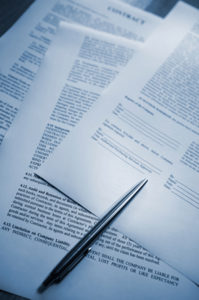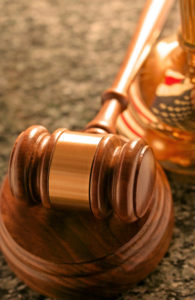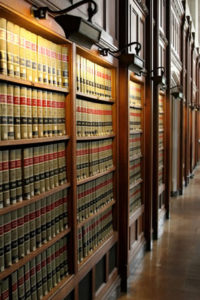Cheap Copyright Attorney in Denver and Boulder Colorado
Copyright Lawyer Services
Copyright law is primarily federal law, as such, the copyright law firm of Hunziker Legal Services is happy to provide copyright attorney services to those clients that come from around the world by phone, fax, letter, and email. If you live in any of the following areas you may also come to my Boulder or Denver, Colorado office to meet me in person, my copyright law firm is located in Colorado close to: Denver, Boulder, Fort Collins, Loveland, Longmont, Broomfield, Westminister, Arvada, Northglenn, Thornton, Centennial, Lakewood, Brighton, Berkley, Aurora, Columbine, Commerce City, Englewood, Federal Heights, Golden, Greenwood Village, Highlands Ranch, Littleton, Parker, Sheryl Wood, Welby, and Wheat Ridge.
Copyright law is fairly complex here are some links that should explain some of the basic concepts::
- What is Copyright?
- Who Can Claim Copyright?
- Copyright and National Origin of the Work
- What Works are Protected?
- What is not Protected by Copyright?
- How to Secure a Copyright?
- Publication
- Notice of Copyright
- How Long Copyright Protection Endures
- Licensing and Transfer of Copyright
- International Copyright Protection
- Copyright Registration
What Is Copyright?
Copyright is a form of protection provided by the laws of the United States to the authors of “original works of authorship,” including literary, dramatic, musical, artistic, and certain other intellectual works. This protection is available to both published and unpublished works. Section 106 of the 1976 Copyright Act generally gives the owner of copyright the exclusive right to do and to authorize others to do the following:
- To reproduce the work in copies or phonorecords;
- To prepare derivative works based upon the work;
- To distribute copies or phonorecords of the work to the public by sale or other transfer of ownership, or by rental, lease, or lending;
- To perform the work publicly, in the case of literary, musical, dramatic, and choreographic works, pantomimes, and motion pictures and other audiovisual works;
- To display the work publicly, in the case of literary, musical, dramatic, and choreographic works, pantomimes, and pictorial, graphic, or sculptural works, including the individual images of a motion picture or other audiovisual work; and
- In the case of sound recordings*, to perform the work publicly by means of a digital audio transmission.
In addition, certain authors of works of visual art have the “moral rights” of attribution and integrity as described in section 106A of the 1976 Copyright Act.
It is illegal for anyone to violate any of the rights provided by the copyright law to the owner of copyright. These rights, however, are not unlimited in scope. Sections 107 through 121 of the 1976 Copyright Act establish limitations on these rights. In some cases, these limitations are specified exemptions from copyright liability. One major limitation is the doctrine of “fair use,” which is given a statutory basis in section 107 of the 1976 Copyright Act. In other instances, the limitation takes the form of a “compulsory license” under which certain limited uses of copyrighted works are permitted upon payment of specified royalties and compliance with statutory conditions.
*NOTE: Sound recordings are defined in the law as “works that result from the fixation of a series of musical, spoken, or other sounds, but not including the sounds accompanying a motion picture or other audiovisual work.” Common examples include recordings of music, drama, or lectures. A sound recording is not the same as a phonorecord. A phonorecord is the physical object in which works of authorship are embodied. The word “phonorecord” includes cassette tapes, CDs, and vinyl disks as well as other formats.
Who Can Claim Copyright?
Copyright protection subsists from the time the work is created in fixed form. The copyright in the work of authorship immediately becomes the property of the author who created the work. Only the author or those deriving their rights through the author can rightfully claim copyright.
In the case of works made for hire, the employer and not the employee is considered to be the author. Section 101 of the copyright law defines a “work made for hire” as:
- a work prepared by an employee within the scope of his or her employment; or
- a work specially ordered or commissioned for use as:
- a contribution to a collective work
- a part of a motion picture or other audiovisual work
- a translation
- a supplementary work
- a compilation
- an instructional text
- a test
- answer material for a test
- an atlas
if the parties expressly agree in a written instrument signed by them that the work shall be considered a work made for hire.
The authors of a joint work are co-owners of the copyright in the work, unless there is an agreement to the contrary.
Copyright in each separate contribution to a periodical or other collective work is distinct from copyright in the collective work as a whole and vests initially with the author of the contribution.
Two General Principles
- Mere ownership of a book, manuscript, painting, or any other copy or phonorecord does not give the possessor the copyright. The law provides that transfer of ownership of any material object that embodies a protected work does not of itself convey any rights in the copyright.
- Minors may claim copyright, but state laws may regulate the business dealings involving copyrights owned by minors. For information on relevant state laws, consult an attorney.
Copyright and National Origin of the Work
Copyright protection is available for all unpublished works, regardless of the nationality or domicile of the author. Published works are eligible for copyright protection in the United States if any one of the following conditions is met:
- On the date of first publication, one or more of the authors is a national or domiciliary of the United States, or is a national, domiciliary, or sovereign authority of a treaty party,* or is a stateless person wherever that person may be domiciled; or
- The work is first published in the United States or in a foreign nation that, on the date of first publication, is a treaty party. For purposes of this condition, a work that is published in the United States or a treaty party within 30 days after publication in a foreign nation that is not a treaty party shall be considered to be first published in the United States or such treaty party, as the case may be; or
- The work is a sound recording that was first fixed in a treaty party; or
- The work is a pictorial, graphic, or sculptural work that is incorporated in a building or other structure, or an architectural work that is embodied in a building and the building or structure is located in the United States or a treaty party; or
- The work is first published by the United Nations or any of its specialized agencies, or by the Organization of American States; or
- The work is a foreign work that was in the public domain in the United States prior to 1996 and its copyright was restored under the Uruguay Round Agreements Act (URAA).
- The work comes within the scope of a Presidential proclamation.
*NOTE: A treaty party is a country or intergovernmental organization other than the United States that is a party to an international agreement.
What Works are Protected?
Copyright protects “original works of authorship” that are fixed in a tangible form of expression. The fixation need not be directly perceptible so long as it may be communicated with the aid of a machine or device. Copyrightable works include the following categories:
- literary works
- musical works, including any accompanying words
- dramatic works, including any accompanying music
- pantomimes and choreographic works
- pictorial, graphic, and sculptural works
- motion pictures and other audiovisual works
- sound recordings
- architectural works
These categories should be viewed broadly. For example, computer programs and most “compilations” may be registered as “literary works”; maps and architectural plans may be registered as “pictorial, graphic, and sculptural works.”
What is not Protected by Copyright?
Several categories of material are generally not eligible for federal copyright protection. These include among others:
- Works that have not been fixed in a tangible form of expression (for example, choreographic works that have not been notated or recorded, or improvisational speeches or performances that have not been written or recorded)
- Titles, names, short phrases, and slogans; familiar symbols or designs; mere variations of typographic ornamentation, lettering, or coloring; mere listings of ingredients or contents
- Ideas, procedures, methods, systems, processes, concepts, principles, discoveries, or devices, as distinguished from a description, explanation, or illustration
- Works consisting entirely of information that is common property and containing no original authorship (for example: standard calendars, height and weight charts, tape measures and rulers, and lists or tables taken from public documents or other common sources)
How to Secure a Copyright
Copyright Secured Automatically upon Creation
The way in which copyright protection is secured is frequently misunderstood. No publication or registration or other action in the Copyright Office is required to secure copyright; however, there are definite advantages to registration.
Copyright is secured automatically when the work is created, and a work is “created” when it is fixed in a copy or phonorecord for the first time. “Copies” are material objects from which a work can be read or visually perceived either directly or with the aid of a machine or device, such as books, manuscripts, sheet music, film, videotape, or microfilm. “Phonorecords” are material objects embodying fixations of sounds (excluding, by statutory definition, motion picture soundtracks), such as cassette tapes, CDs, or vinyl disks. Thus, for example, a song (the “work”) can be fixed in sheet music (“copies”) or in phonograph disks (“phonorecords”), or both. If a work is prepared over a period of time, the part of the work that is fixed on a particular date constitutes the created work as of that date.
Publication
Publication is no longer the key to obtaining federal copyright as it was under the Copyright Act of 1909. However, publication remains important to copyright owners.
The 1976 Copyright Act defines publication as follows:
“Publication” is the distribution of copies or phonorecords of a work to the public by sale or other transfer of ownership, or by rental, lease, or lending. The offering to distribute copies or phonorecords to a group of persons for purposes of further distribution, public performance, or public display constitutes publication. A public performance or display of a work does not of itself constitute publication.
Note: Before 1978, federal copyright was generally secured by the act of publication with notice of copyright, assuming compliance with all other relevant statutory conditions. U. S. works in the public domain on January 1, 1978, (for example, works published without satisfying all conditions for securing federal copyright under the Copyright Act of 1909) remain in the public domain under the 1976 Copyright Act.
Certain foreign works originally published without notice had their copyrights restored under the Uruguay Round Agreements Act (URAA).
Federal copyright could also be secured before 1978 by the act of registration in the case of certain unpublished works and works eligible for ad interim copyright. The 1976 Copyright Act automatically extends to full term (section 304 sets the term) copyright for all works, including those subject to ad interim copyright if ad interim registration has been made on or before June 30, 1978.
A further discussion of the definition of “publication” can be found in the legislative history of the 1976 Copyright Act. The legislative reports define “to the public” as distribution to persons under no explicit or implicit restrictions with respect to disclosure of the contents. The reports state that the definition makes it clear that the sale of phonorecords constitutes publication of the underlying work, for example, the musical, dramatic, or literary work embodied in a phonorecord. The reports also state that it is clear that any form of dissemination in which the material object does not change hands, for example, performances or displays on television, is not a publication no matter how many people are exposed to the work. However, when copies or phonorecords are offered for sale or lease to a group of wholesalers, broadcasters, or motion picture theaters, publication does take place if the purpose is further distribution, public performance, or public display.
Publication is an important concept in the copyright law for several reasons:
- Works that are published in the United States are subject to mandatory deposit with the Library of Congress.
- Publication of a work can affect the limitations on the exclusive rights of the copyright owner that are set forth in sections 107 through 121 of the law.
- The year of publication may determine the duration of copyright protection for anonymous and pseudonymous works (when the author’s identity is not revealed in the records of the Copyright Office) and for works made for hire.
- Deposit requirements for registration of published works differ from those for registration of unpublished works.
- When a work is published, it may bear a notice of copyright to identify the year of publication and the name of the copyright owner and to inform the public that the work is protected by copyright. Copies of works published before March 1, 1989, must bear the notice or risk loss of copyright protection.
International Copyright Protection
There is no such thing as an “international copyright” that will automatically protect an author’s writings throughout the entire world. Protection against unauthorized use in a particular country depends, basically, on the national laws of that country. However, most countries do offer protection to foreign works under certain conditions, and these conditions have been greatly simplified by international copyright treaties and conventions.
Copyright claimed in formatting, modifications, and links exclusive of U. S. government Publication https://www.uspto.gov/web/offices/pac/doc/general/

About Will Hunziker
I am a patent and trademark attorney working in Boulder and Denver, Colorado where I provide cheap: patent, trademark, copyright, entertainment, corporate, business, and any other legal services you may require.
If you want a lawyer who answers your calls personally and charges a cheap rate, then you have found your man. I pride myself on the fact that each and every one of my clients gets the same zealous advocacy they can come to rely on again and again.

Contact Information
Hunziker Legal Services, PLLC.
A Professional Corporation
WillHunziker@gmail.com
Phone: (720) 310-0013
Fax: (720) 306-3017
Boulder Address:
1942 Broadway St. Suite 314
Boulder, CO 80302
Denver Address:

Geographic Regions of Practice:
Our lawyers and patent attorneys represent clients throughout Colorado; including residents of Boulder, Denver, Fort Collins, Loveland, Longmont, Broomfield, Westminister, Arvada, Northglenn, Thornton, Centennial, Lakewood, Brighton, Berkley, Aurora, Columbine, Commerce City, Englewood, Federal Heights, Golden, Greenwood Village, Highlands Ranch, Littleton, Parker, Sheryl Wood, Welby, and Wheat Ridge.






Use of HunzikerLegalServices.com the (‘Site’) is governed by the Site Usage Terms, use of the site constitutes acceptance of those Terms.
All rights reserved © 2007-18, Hunziker legal Services, PLLC
Site Usage Terms

